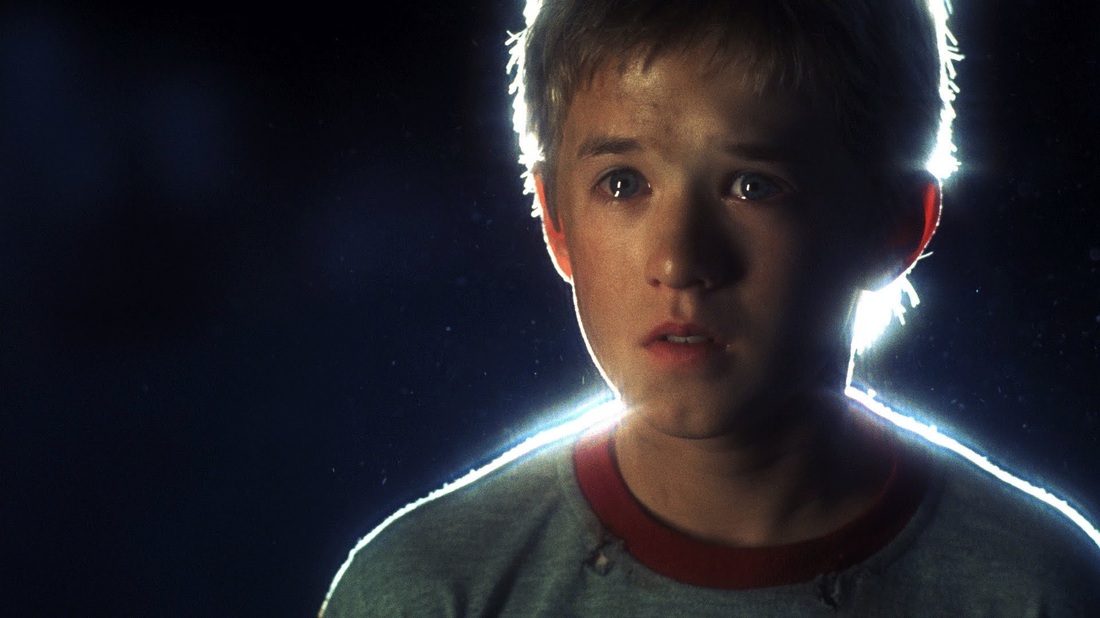
David (Haley Joel Osment) is a robot in A.I. Artificial Intelligence (Spielberg, 2001) that has been specially programmed to “unconditionally love.” He has been given to a couple whose son is in a coma. At first Monica, the mother (Frances O’Connor), wants nothing to do with him; he cannot replace their son. Though he has a lot to learn about human life, she begins to like him, and accepts him into their family. Then Martin, their son (Jake Thomas), comes out of the coma, and has to adapt to having a robot “brother.” Of course, he doesn’t treat David like a brother, but like a toy. Martin puts him up to dangerous things, like jealous elder brothers are wont to do, telling him what he must do to make his mother love him more. David is programmed for the sole purpose of loving his parents, and he is learning more and more to live for their love, so he does the things that Martin instigates and that gets him into a lot of trouble. Eventually, Monica takes him out to the forest (which was actually an act of love, because otherwise he was going to be destroyed) and leaves him to his own devices. He perceives that the reason he was abandoned was because he wasn’t a real boy. So he sets out on a quest to become a real boy, and return to the love of his mother.
This quest is what made him into a real boy, according to his creator Professor Hobby (William Hurt), when David meets him in “the ends of the earth.” But this affirmation that David had achieved “the greatest single human gift” of chasing our dreams wasn’t enough. David may have been naïve to think that the blue fairy could turn him into a real boy, but he was self-aware enough to know that the professor was only giving him a happy lie. He truly desired his mother’s love, and it is arguably that rejection of the false and the total dedication to seeking true satisfaction which makes him “real.”
The quest to be a “real boy” is the quest to become fully alive. To love, and be loved is what makes us fully alive, according to this movie. In that definition, although it is raw and heartrending, David becomes real in the end. The themes of truth and love are contrasted with hedonistic-death-escapism and cynicism throughout this movie—David representing the former, the robot-lynching flesh-fairs and legalized brothel of Rouge City representing the latter. The robot David achieves reality through his undying and unwavering love for his mother. Can the same be said of the humans who, seeking adrenaline and sexual highs, use and abuse robots and one another?
A.I. Artificial Intelligence explores what it would take for a robot to become a “real-live” human, and also muses whether or not many humans are completely real themselves. It is cinematically beautiful, masterfully acted, and also contributes to a canon of stories that use the subject of artificial intelligence to sound the depths of human desires and existence.


 RSS Feed
RSS Feed
